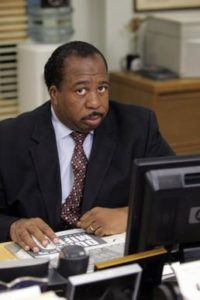 So I was hoping you could help me out with something. I’ve been pondering it all weekend and I just can’t figure it out.
So I was hoping you could help me out with something. I’ve been pondering it all weekend and I just can’t figure it out.
Usually, when this happens, I sit down and do a brain dump of all the thoughts swirling in my brain. Then I organise it, write several drafts, find a nice picture, and boom – we get another blogpost.
But after writing all Sunday, I still couldn’t get my head around it. Maybe you can help me out.
Here’s the thing: We talk a LOT about “financial freedom” these days. Specifically, financial freedom refers to the point when you realise that your wealth has grown SO LARGE that you never have to work any longer. Whenever I ask my readers why they’d like to start investing, the #1 reason is “to achieve financial freedom”.
Bloggers write about financial freedom as if it’s the Holy Grail. Early Retirement pundits devise elaborate spreadsheets to help you calculate the exact age when you can get there. We take it for granted that it’s THE goal we should all be striving towards.
But why should that be the case?
The “Necessary Evil” Argument
 In the American version of The Office, there’s a droopy-eyed character called Stanley.
In the American version of The Office, there’s a droopy-eyed character called Stanley.
From Season 1, it’s clear that he does not want to be there. He does crossword puzzles at meetings and doesn’t pay any attention to whatever his boss Michael says. The only time I’ve seen Stanley smile was when he thought that the whole office was being retrenched. He planned to take his severance package, travel the world, and retire.
Now, it seems that lots of people out there are like Stanley. They see work as a necessary evil: Something they have to do to pay the bills. They long for the day when they can throw their resignation letter on their boss’ desk, march out, and do something really meaningful.
The Necessary Evil Argument presupposes that there’s a divide between the work we’re doing now and the work that we SHOULD be doing.
To me, that’s why most people want to be financially free: So that their basic needs are taken care of, and THEN they can go do something more meaningful like raise their kids / serve the Church / build an orphanage in Cambodia.
The “My Work Has Purpose” Argument
 On the flip side, there are the folks who see their work as contributing to a greater good.
On the flip side, there are the folks who see their work as contributing to a greater good.
One of my friends works at tech company. He complains about every aspect of life including traffic, politics and restaurants, but he absolutely loves his job. He truly believes that his company is changing the world for the better.
By the way, it doesn’t mean that you have to work for Google or some startup whose mission is to “make the world a better place”. Even the most mundane jobs can have purpose. Here’s a great example from Mark Zuckerberg’s commencement address at Harvard:
One of my favourite stories is when John F. Kennedy visited the NASA space center, he saw a janitor carrying a broom and he walked over and asked what he was doing. The janitor responded: “Mr. President, I’m helping put a man on the moon.”
Of course, a lot of it has to do with perspective. Talk to two janitors, and one will tell you that he’s just cleaning up after the ungrateful brats on Level 3, while the other will tell you that he’s helping to put a man on the moon.
In Team “My Work Has A Purpose”, there’s no divide: The work you should be doing IS the work you’re doing. Even though it’s not always easy and some days are frustrating, but you keep going because you’re driven by purpose.
So Why Should We Care About Financial Freedom?
So here’s the dilemma I’ve been pondering:
If you see work as a necessary evil, wouldn’t it be easier to simply find a more meaningful job than to struggle for many years towards financial freedom?
And if your work already has a meaningful purpose and you find fulfilment in it, why would you want financial freedom which is the option to quit your job?
I’m curious to hear from you:
- How do you view your work – as a necessary evil, or having a deeper purpose?
- In either case, why is financial freedom still a goal for you?
Let me know in the comments below – I read every one.
Image credits: Buddyspike28, Maurice Svay
Even if your current work is meaningful and you thoroughly enjoy it, it does not mean that you get to do it for the rest of your life. Financial freedom should still be something people work towards to as it also provides security and safety.
That job we think we like to do; but we may not be hired for that job even we are not expecting higher pay.
The next alternative is to be self-employed; but self-employed means no medical benefits, no employer CPF contribution, and no sick leaves.
Most of us as employees will tend to be realistic and practical and seeking financial independence so that one day medical benefits and other monetary rewards are no longer an incentive to work at the same old job.
My view is everyone should find meaning in their current job, which was what the janitor did. It’s not finding a more meaningful job. Of course, if you’ve tried and there is just no way to find meaning in your current one, then by all means switch and start finding meaning again. Unless, you’re smuggling drugs or trafficking children, too many people are likely too idealistic and gave up finding too quickly.
And when you stumble upon that higher calling that no one out there is fulfilling, venture forth and start something.
Mine isn’t a grand purpose or anything, but i see value in what i am doing as a tiny part of the world today. Sure i still want to be free just so that i know my actions and decisions can be truly 100% independent. Companies and people higher can change, so the freedom is still important once any change impacts your current purpose.
WJ
I am lucky, i love my job and I see it as I am fulfilling a greater purpose (I am a nurse). Every patient that I see, I hope I give them a piece of advice that helps them, or simply just a smile to brighten their day. Even though I love my job and can visualize myself working till i am 60 (well, not sure if my younger colleagues then would enjoy having this stuffy aunty working alongside them who probably having problems catching up with technology), I would also like to attain financial freedom because I love having that thought that I can quit anytime I want; I do not need to depend on my husband/children for money to do what I like; dish out money to whoever I think needs it.
I think most of us fall into Team In Between. Financial freedom gives us the ability to dream of changing a job without fear even if the pay is not the same. It also inculcates a form of discipline into our spending habits. It also teaches us a new skill set.
I think your dilemma comes from equating financial freedom to quitting your job/ not working.
To me, being financially free isn’t about not working at all, but about not needing to work for monetary reasons.
Being financially free means I go to work because I believe in its purpose, its meaning, because I want to, and not because I have to put food on the table or pay the bills.
Hope this helps! 😀
The goal of achieving financial freedom is not because you see your work as a necessary evil. Rather, it is to provide security in the event you find yourself without one.